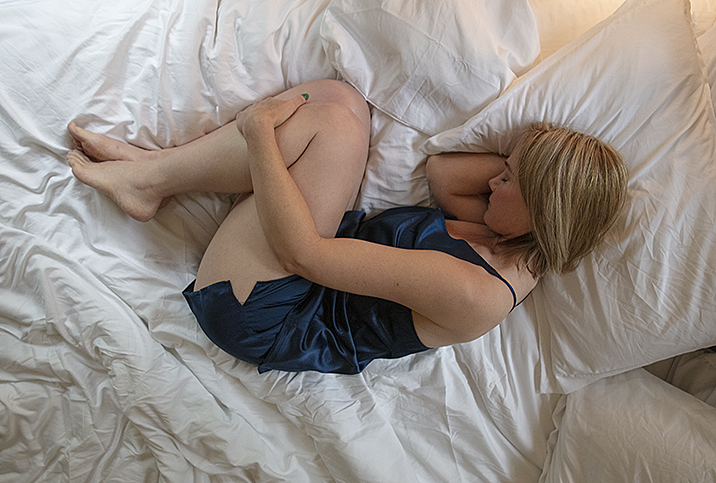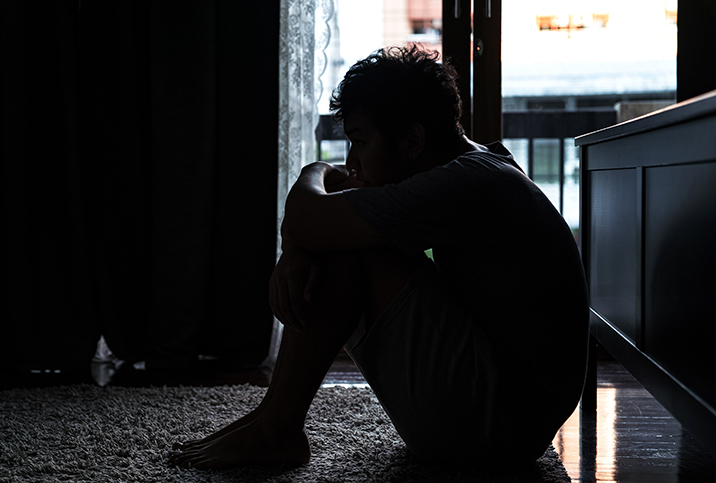The Physical Effects of Depression

Depression is more than just a mental disorder. It influences just about every system of the body. Here's how depression may be affecting your physical health.
The hormonal impact of depression
Any time you experience hormonal shifts, depression is a potential side effect. Many people first notice depression during postpartum, menopause, puberty, thyroid treatment or when using exogenous hormones (through birth control pills or steroids, for example). The relationship goes both ways: hormone changes can cause depression, and depression can lead to hormonal shifts.
Insulin resistance and elevated cortisol levels are commonly seen in individuals with depression. Some of these hormones' side effects include visceral fat gain (carrying more weight in the midsection), prediabetes or diabetes and high blood pressure and cholesterol levels.
Insulin and cortisol help regulate our energy levels and stress response. Dysregulation can lead to feelings of fatigue and exhaustion, which are often associated with depression. Other physical side effects of depression include body aches and pains, headaches and weight loss or gain.
How depression affects libido
A common symptom of depression is the loss of interest in activities you once enjoyed. That can include sex. Depression is associated with erectile dysfunction (ED) and reduced sex drive. The emotional aspects of relationships can suffer when one or both partners are depressed, making sex and intimacy more difficult to maintain.
If your mood jumps from manic to depressive, manic episodes may include hyperfocus on sex and engaging in risky sexual activity. It's crucial to identify the connection between your sexual habits and mental health to gain control over your behavior and avoid unintended consequences, such as sexually transmitted diseases (STDs), relationship trouble, unwanted pregnancies, low self-esteem and more.
Sexual side effects of antidepressants
Treatment for depression may include antidepressant medications, such as selective serotonin reuptake inhibitors (SSRIs). These prescriptions may come with various sexual side effects, including:
- Erectile dysfunction
- Low libido
- Trouble reaching orgasm
- Premature ejaculation
If sexual side effects negatively affect your relationship or quality of life, talk to your doctor about switching your medication or timing your dosages differently. You may be able to take depression medication once a day after having sex. Sometimes your doctor can suggest additional treatments to address sexual side effects. Always discuss medication changes with your doctor before discontinuing treatment or turning to unregulated supplements.
The link between depression and unhealthy habits
Depression increases the likelihood of smoking, poor nutrition, lack of exercise, bad sleeping habits and low motivation to engage in preventive health care. These behaviors can contribute to chronic diseases, such as cancer, diabetes, malnutrition, obesity and heart disease. A weakened immune system and high inflammation levels can make you more vulnerable to illness and infections.
Depression requires an added effort and accountability to maintain healthy habits. If possible, designating a point person—a friend, family member, therapist or social worker—to remind you to schedule and keep your appointments can help you stay on track.
Getting help
If depression is leading you toward self-harming behaviors, seek help right away. Cutting, eating disorders, substance use and suicidal thoughts are all dangerous effects of depression that need to be addressed with professional support. It's possible to break free of depression's hold, but many people need outside help to succeed.
You can call the Substance Abuse and Mental Health Services Administration (SAMHSA) Helpline 24 hours a day, seven days per week for immediate assistance at 1-800-662-HELP (4357). This confidential helpline received more than 833,500 calls in 2020, so you're not alone if you choose to call. Don't delay in finding the better life you deserve.


















